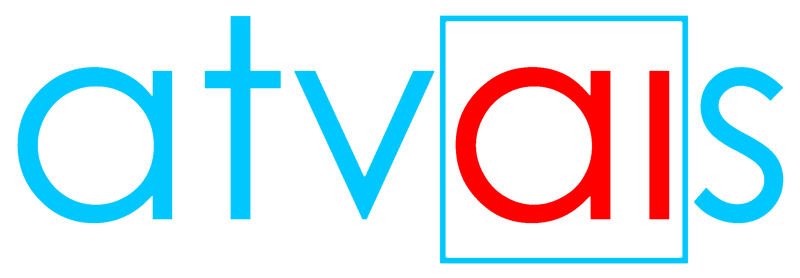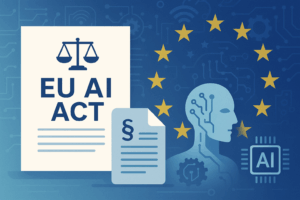Significance of AI Governance
Artificial intelligence (AI) is rapidly changing the way industries operate, enhancing decision-making, and sparking innovation. As AI becomes more integrated into everyday life, it is crucial to have strong governance frameworks to ensure its use is ethical, transparent, and responsible. AI governance helps manage the risks associated with AI, protects individual rights, and promotes fairness. With AI becoming more prevalent, there is a growing demand for professionals who are skilled in this field and can guide responsible AI implementation while keeping up with evolving regulations.
Changes in the AIGP Training
This article will explore the recent updates to the training materials for the Certified AI Governance Professional (AIGP) exam. While the core Body of Knowledge (BoK) has not changed, the training content has been updated to reflect new advancements in AI technologies, ethical standards, and regulatory requirements. Understanding these updates is key for exam success, as they offer insights into the current landscape of AI governance. We will examine how these changes impact the exam and provide tips to help candidates include this new information in their study plans, ensuring they are ready to excel in their certification journey.
Understanding the AIGP Certification
The Certified AI Governance Professional (AIGP) certification, offered by the International Association of Privacy Professionals (IAPP), is designed for those looking to lead in ethical AI deployment. This credential serves as a mark of excellence, showcasing expertise in critical areas like AI governance, ethics, compliance, and risk management. The certification encompasses a broad range of topics, including data privacy, evolving regulations, and the ethical challenges of AI use. By earning this credential, professionals prove their commitment to high standards and best practices, positioning themselves as leaders in the responsible implementation of AI technologies.
Role of IAPP
The IAPP is known for its leadership in privacy and governance certifications. It sets a high bar with the AIGP, reflecting the latest developments and industry standards in AI governance. Earning this certification enhances professional credibility and creates career advancement opportunities in the evolving field of AI governance. As organizations increasingly prioritize responsible AI practices, certified professionals become essential assets. They guide businesses through the complexities of AI ethics, compliance, and risk management. The AIGP certification empowers these professionals to make a meaningful impact, ensuring AI technologies are used transparently and ethically in today’s regulated environment.
The Body of Knowledge – Key AIGP Updates
The Body of Knowledge (BoK) serves as the main guide for the AIGP certification. It outlines essential exam topics, domains, and competencies that candidates must master. While the BoK itself remains unchanged, the training materials have been updated to include the latest developments in AI governance. These updates cover new AI technologies, evolving ethical guidelines, and emerging regulatory frameworks. The revised content offers deeper insights into established topics, aligning with the rapid changes in AI governance. Understanding these revisions is crucial for effective exam preparation. They highlight key advancements that reflect current industry standards. Below are significant updates across various domains, corresponding to the relevant sections in the BoK:
1. Domain I.B – Advanced AI Models
The training materials now include expanded definitions and examples of advanced AI models, such as deep learning, generative AI, transformer models, multimodal models, and natural language processing (NLP). These additions aim to familiarize candidates with the latest AI technologies that are increasingly relevant in governance contexts.
2. Domain I.C – AI Technology Stack
There have been refinements to the AI technology stack, including updated definitions of quantum computing and how it integrates within AI infrastructure. Understanding these changes is crucial, as the exam may feature questions on the updated relationships between AI components.
3. Domain I.D – Alternatives to AI
A new focus has been added on considering alternatives to AI solutions during the planning phase. This update emphasizes evaluating when AI is the right tool versus other possible solutions, reflecting a more strategic approach to AI deployment.
4. Domain II.A – AI-Specific Harms Taxonomies
Updates include AI-specific harms taxonomies, such as the PANOPTIC Privacy Threat Model, which outlines potential risks associated with AI use. Candidates should familiarize themselves with these frameworks to understand the impact of AI on privacy and security.
5. Domain II.C – Ethical Guidelines Updates
The inclusion of updates from the AI High-Level Expert Group (AI HLEG) and the latest OECD AI Principles highlights evolving ethical considerations. Candidates should study these guidelines, as they form the basis for ethical AI governance and decision-making.
6. Domain III.A – Inclusion of CPRA
The California Privacy Rights Act (CPRA) has been added to the relevant privacy laws section, reflecting the growing influence of regional regulations on AI governance. Understanding CPRA’s implications for data handling is essential for addressing privacy-related exam questions.
7. Domain IV.A – EU AI Act Updates
The materials have been updated with details on the EU AI Act, including penalties, enforcement timeframes, and prohibited AI systems. Candidates should familiarize themselves with these provisions, as the Act represents a significant regulatory framework shaping global AI practices.
8. Domain IV.B – Emerging Global Laws
New content includes information on Canada’s proposed AI Act (C-27), along with U.S. federal and state laws. This section ensures that candidates are aware of the global regulatory landscape and its impact on AI governance.
9. Domain IV.C – ISO/IEC 42001:2023 Framework
The latest training materials include the new ISO standard for AI management systems, ISO/IEC 42001:2023. Candidates should study this framework, which outlines best practices for managing AI processes and risks.
10. Domain V.A to V.D – AI Development Life Cycle Phases
Updates have been made to various phases of the AI development life cycle, including considerations for alternatives to AI, new data definitions, feature flags, and model drift. These updates are critical for understanding how AI models evolve over time and how to manage their performance.
11. Domain VI.D – Data Lineage, Data Provenance, and AI Impact Assessments
New focus areas have been added on data lineage, data provenance, and conducting AI impact assessments. These elements are essential for tracking data origins and assessing the broader impact of AI deployments.
12. Domain VII.A & VII.B – Legal Considerations and Fair Use Doctrine
The training materials now address legal considerations, including the Fair Use doctrine, and have restructured content to better address user concerns. This update ensures that candidates are aware of key legal implications and best practices in AI governance.
These updates underscore the need for AIGP candidates to stay informed about the latest developments in AI governance. Being well-versed in these changes ensures that candidates are fully prepared to meet certification standards and address the evolving landscape of AI regulations and ethical considerations.
Tips for Preparing for the AIGP Exam with These Updates
To prepare effectively for the AIGP exam, candidates should recognize that the exam questions may include recent updates from the training materials. These updates cover new AI models, ethical guidelines, and emerging regulations. Therefore, expanding your study plan beyond the core topics in the Body of Knowledge (BoK) is essential. Focus on the latest developments in AI governance, such as advanced ethical frameworks and evolving global laws. By integrating these updates into your study routine, you will be better equipped to handle any new or revised questions on the exam.
Stay Current with Industry Developments
Keep up-to-date with the latest AI governance news by regularly reading industry publications, academic journals, and official communications from the IAPP. Websites like atvais.com also offer valuable insights. Staying informed helps you understand the broader context of these updates and their implications for the exam.
Deepen Understanding of Updated Topics
Dedicate extra study time to subjects that have been recently updated, such as advanced AI models and new regulatory frameworks. A thorough understanding of these areas will enhance your confidence and readiness to handle questions that reflect the most recent changes.
Use Updated Study Materials
Invest in study resources that include the latest updates. Revised prep courses, updated textbooks, and current online modules provide insights into the most up-to-date content, aligning your preparation with industry standards.
Engage with the Professional Community
Join professional forums, study groups, and social media communities related to AI governance. Engaging with peers allows you to discuss updates, share resources, and gain diverse perspectives, which can deepen your understanding of complex topics.
Practice with Updated Exam Questions
Look for practice exams and questions that incorporate the latest training material updates. Testing your knowledge of new content and familiarizing yourself with potential exam questions will significantly enhance your readiness.
The AIGP Exam Prep Suite – AIGP Updates Training
One of the most effective resources for AIGP exam preparation is the AIGP Exam Prep Suite by 22academy. This comprehensive suite provides tailored support aligned with the latest training updates, bridging the gap between the foundational BoK and current AI governance developments. It includes a self-paced eLearning course filled with the latest information, interactive modules, and expert guidance. This format allows candidates to stay updated while learning at their own pace. The suite also offers various practice options, including targeted quizzes, detailed explanations, and a trial exam that closely mirrors the actual AIGP exam format. With all necessary content included, candidates can access everything they need without buying extra materials.
22academy also offers flexible packages to suit different budgets and preparation needs. These options are perfect for candidates who want focused support without committing to the full suite, making advanced preparation accessible to more professionals. Whether choosing the complete suite or a budget-friendly package, candidates benefit from structured learning, expert guidance, and the latest resources with AIGP updates. These elements significantly boost exam readiness and confidence.
AIGP Study Group
Joining dedicated study groups, such as the ‘AIGP Study Group’ on Facebook and LinkedIn, is another valuable strategy for exam preparation. These groups offer excellent opportunities for networking, shared learning, and staying updated on the latest exam information. Members can discuss recent changes, share study materials, ask questions, and gain insights from certified professionals and fellow candidates. Engaging in these communities provides a supportive environment where you can exchange tips, tackle complex topics, and enhance your overall readiness for the AIGP exam.
Conclusion
Joining dedicated study groups, such as the ‘AIGP Study Group’ on Facebook and LinkedIn, is another valuable strategy for exam preparation. These groups offer excellent opportunities for networking, shared learning, and staying updated on the latest exam information. Members can discuss recent changes, share study materials, ask questions, and gain insights from certified professionals and fellow candidates. Engaging in these communities provides a supportive environment where you can exchange tips, tackle complex topics, and enhance your overall readiness for the AIGP exam.






